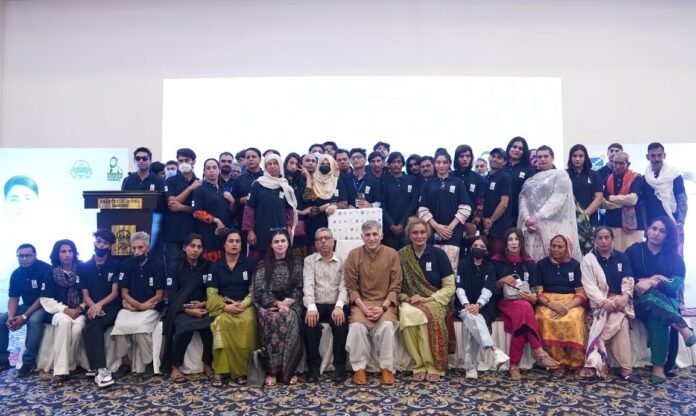Punjab Skills Development Fund (PSDF) has distributed more than 200 trade-specific toolkits to transgender persons under the PSDF-Pehchan program.
They get toolkits under the Chief Minister of Punjab Maryum Nawaz’s vision of Skilled Punjab. These transgender persons will begin their professional journeys in high-demand trades. These trades include Beauty and Grooming, Culinary Arts, Performing Arts, Information Technology, Handicrafts, and Digital Freelancing.
In Pakistan, nearly 95 per cent of transgender individuals remain excluded from formal employment opportunities. The toolkit distribution ceremony marked a milestone in empowering the transgender community. The PSDF translates their training into sustainable and dignified livelihoods. Each toolkit was tailored to the respective trade, enabling participants to start freelancing, launch small businesses, or secure employment opportunities immediately.
Punjab Skill Development Fund:
Speaking at the event, CEO PSDF Ahmed Khan said the initiative goes beyond training. “By equipping our transgender trainees with toolkits, we are providing them with the means to transform their skills into dignified sources of income. We take steps for economic empowerment and to creating inclusion and opportunity for every segment of society”, he said.
Chairperson of the CM Task Force on Skills Development Adnan Afzal Chattha also spoke. He observed that the government has made committment to building an inclusive and skilled workforce. “Programs like Pehchan reflect the Chief Minister’s vision of empowering every individual, regardless of gender, to earn a dignified living. The success of these trainees is a success for all of Punjab”, he said.
PSDF-Pehchan program is the first of its kind in the province, aimed specifically at skilling and uplifting the transgender community. Through partnerships with more than 18 leading training service providers, including STEP, Hunerkada, Skill Up and Khawaja Sira Society, the program provides market-relevant skills, mentorship, and post-training support to ensure long-term impact.
The distribution of toolkits is expected to accelerate the program’s outcomes, enabling graduates to contribute productively to the economy while pursuing dignified and independent livelihoods.



